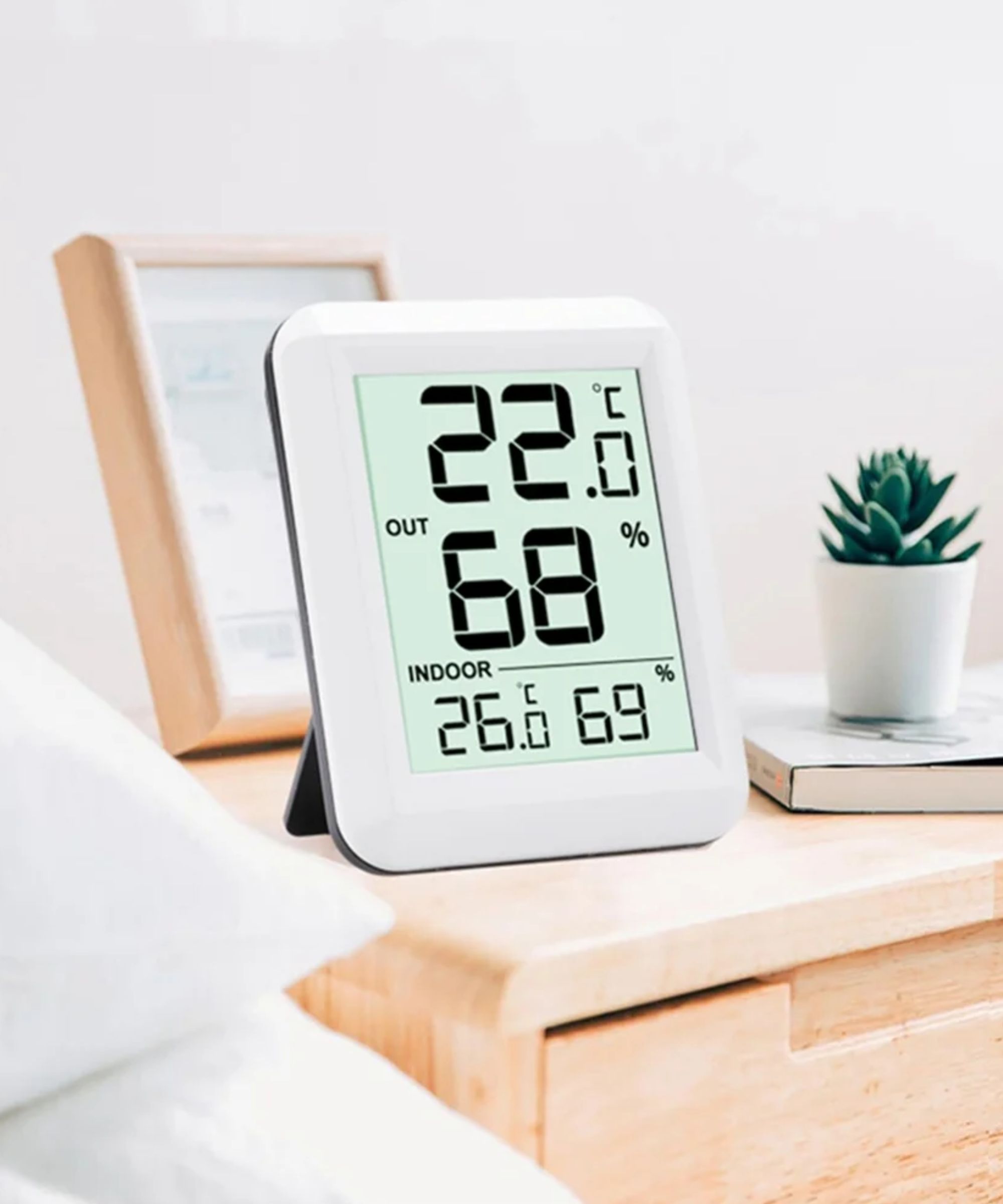
As temperatures rise, the air's ability to hold moisture increases, as do the rates of evaporation, leading to higher indoor humidity levels. This can be further increased by everyday activities such as cooking and watering plants, as well as frequent ventilation with humid outdoor air.
Just as having too low humidity can have a number of adverse effects on your home and health, humidity that is too high can be damaging. So, understanding and managing the factors that lead to increased indoor humidity in summer can help you achieve the best humidity level in your home to ensure a comfortable and healthy environment.
Our experts have shared the ideal humidity levels for a house in summer and provided practical tips for maintaining them.
The ideal humidity level for a house in summer
The U.S. Environmental Protection Agency (EPA) recommends keeping indoor humidity levels between 30% and 50% in summer. Adjustments might be necessary depending on your specific regional climate and daily weather conditions.
This range is considered optimal for several reasons:
- Health: High humidity levels can increase the proliferation of dust mites and other allergens, exacerbating allergy and asthma symptoms. Additionally, it creates an environment conducive to the growth of mold and mildew, which can lead to structural damage and health problems. Maintaining a humidity level between 30-50% helps prevent the growth of bacteria, viruses, and mold and mildew, which thrive in higher-humidity environments.
- Preservation of home and belongings: High humidity can cause paint to peel, wood to warp, and metal to corrode. Reducing your home's humidity levels can help protect household objects from moisture damage.
- Comfort: High humidity levels make the air feel warmer than it is, leading to discomfort and increased reliance on air conditioning. Proper humidity levels help keep your home comfortable without overworking your AC.
- Energy efficiency: Controlling humidity levels can make cooling systems more efficient, reducing energy consumption and cutting energy bills.
Tips for maintaining ideal humidity levels in summer

In order to keep your home's humidity levels within this ideal range, you can try a combination of these strategies:
- Monitor humidity: 'It's a good idea to invest in a hygrometer, a device that measures the humidity level in your home,' recommends Josh Mitchell, HVAC technician and owner of Air Conditioner Lab. 'Regular monitoring and tracking humidity helps you adjust your humidity control methods effectively, ensuring it remains within the recommended range.'
- Seal leaks: Prevent moisture intrusion by sealing leaks around windows, doors, and other openings.
- Ventilation: 'When humidity is high outdoors, installing advanced ventilator systems that ensure a steady exchange of fresh air – particularly in high-moisture areas like kitchens and bathrooms – can remove excess moisture from the air, reducing humidity,' explains Al Fouz, owner of Abaco Air Experts. 'This can include using a high-efficiency AC unit, exhaust fans, and strategically placed air purifiers.'
- Insulation: Proper insulation helps prevent humidity from entering your home, maintaining a more stable indoor environment.
- Houseplants: Certain houseplants, like ferns and palms, can absorb excess moisture, helping to manage indoor humidity naturally. However, avoid overwatering them as it can increase humidity levels.
- Dehumidifiers: A dehumidifier is a great way to remove excess moisture from the air when humidity exceeds 50%. The right dehumidifier for the job will depend on your home's size and specific needs.
- Regular dehumidifier and HVAC maintenance: 'Regular maintenance, such as filter changes and coil cleaning, ensures your dehumidifier or AC system runs efficiently and maintains optimal humidity levels,' advises Allen Chenault, owner and Founder of AC's Heating & Air LLC. You can check out our guides for how to clean your HVAC and how to clean a dehumidifier to take you through the key steps.
FAQs
Why might humidity levels be too low in a house in summer?
'During the summer, air conditioning systems naturally remove some moisture from the air as they cool your home, which can sometimes lower humidity too much,' explains Josh Mitchell. 'Additionally, an oversized or poorly maintained AC can cool the air too quickly without adequately dehumidifying, leading to uneven and uncomfortable humidity levels.'
If the humidity drops below 30%, assess whether your air conditioning system is causing the issue and make nessecary adjustments. You can also use a humidifier to add the necessary moisture back into your home.
Whether you need to reduce your home's humidity or increase it, the goal is to create the most pleasant and healthful indoor environment based on outdoor temperature and humidity levels.







